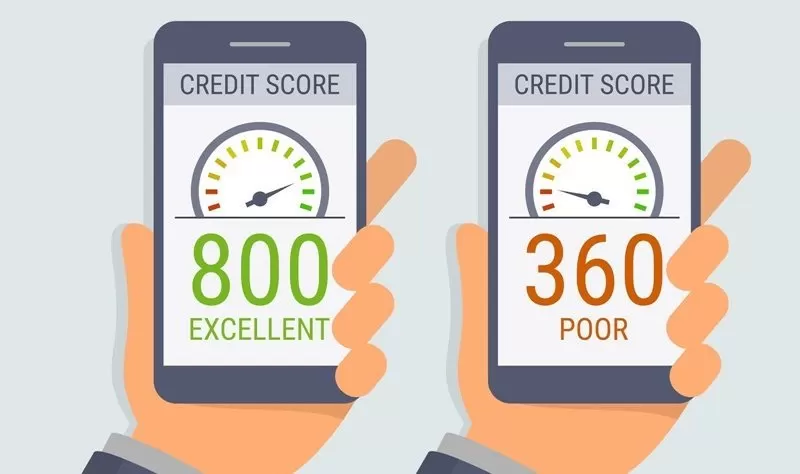
Credit score is a key factor in anyone's financial life.
It determines a person's ability to obtain loans, credit cards and other financial products.
In addition, it can also affect the interest rates and terms offered on these products.
Timeliness of payment
One of the most important factors in maintaining a good credit score is the punctuality in paying your debts.
You should always pay on time and in full, without exception.
If you have trouble remembering when your payments are due, you can set alarms on your phone or set up automatic payments to make sure you are never late.
It's also important to have a budget and plan your spending to avoid situations where you can't pay your debts.
Using credit
Credit utilization refers to the percentage of your credit limit that you are using.
If you have a credit card with a $1,000 limit and have spent $500, your credit utilization is 50%.
A high credit utilization percentage can negatively affect your credit score.
To maintain a good credit score, it is recommended that you keep your credit utilization below 30%.
If you are having trouble keeping your credit utilization levels low, consider requesting an increase in your card limit or opening a new account to spread your spending.
Credit terms
Credit terms are the amount of time you have to repay a debt. It is important that you comply with the established terms to avoid late charges and maintain a good credit score.
It is always advisable to pay your debts before the established deadline, as this shows responsibility and helps you gain the trust of lenders.
Remember that each type of credit has its own established term and it is important that you know what it is so you can plan your payments effectively.
Type of credit
There are several types of credit that can affect your credit score. The most common are:
- Revolving credit: This type of credit is automatically renewed each time a payment is made;
- Fixed-term credit: This type of credit has a set term for paying the loan in full;
- Mortgage loan: This type of loan is used to purchase a property. It is one of the largest loans you can get and can significantly affect your credit score.
It is important to understand how each type of credit can affect your credit score and make sure you use them wisely.
Credit History
Credit history is one of the most important factors in assessing a person's financial solvency.
This history shows an individual's past behavior in terms of paying debts and financial obligations.
Lenders and financial institutions use credit history to determine the risk involved in lending money to an individual.
If an individual has a positive credit history, he or she is more likely to be granted a loan with a favorable interest rate.
On the other hand, if they have a negative credit history, they are less likely to be granted a loan or have to pay a higher interest rate.
It is important to maintain a good credit history, which means paying all bills and financial obligations on time and avoiding excessive debt.
Credit applications
Credit applications can have a negative impact on your credit score if they are made too often.
Every time you apply for a loan or credit card, lenders review your credit report, known as a "hard inquiry."
If you have a lot of hard inquiries in a short period of time, it may appear that you are desperate for credit and this can be a red flag to lenders.
Try to limit your credit inquiries to only what you need and don't apply for multiple credit cards at the same time.
Remember that soft inquiries, such as when you check your own credit report or when a lender performs a pre-approval, do not affect your credit score.
Proper financial management
Proper financial management is essential to maintaining a good credit score. This includes:
- Maintaining a budget and sticking to it;
- Paying your bills on time;
- Not spending more than you earn;
- Not having too many credit cards;
- Not using your entire available line of credit;
- Not applying for too much credit at one time;
- Maintain a good credit history;
- Monitoring your credit report regularly to detect errors or frauds.
Maintain a good relationship with your bank and creditors
It is important to maintain a good relationship with your bank and creditors to improve your credit score.
Here are some tips:
- Pay your bills on time;
- Don't get into more debt than you can afford;
- Do not use more than 30% of your credit limit;
- Contact your bank or creditor if you are having difficulty paying your debts;
- Keep your bank accounts active and not overdrawn;
- Do not close your credit accounts, as this can negatively affect your credit history.
Remember that maintaining a good relationship with your bank and creditors is fundamental to have a good credit score and access to better credit options.






